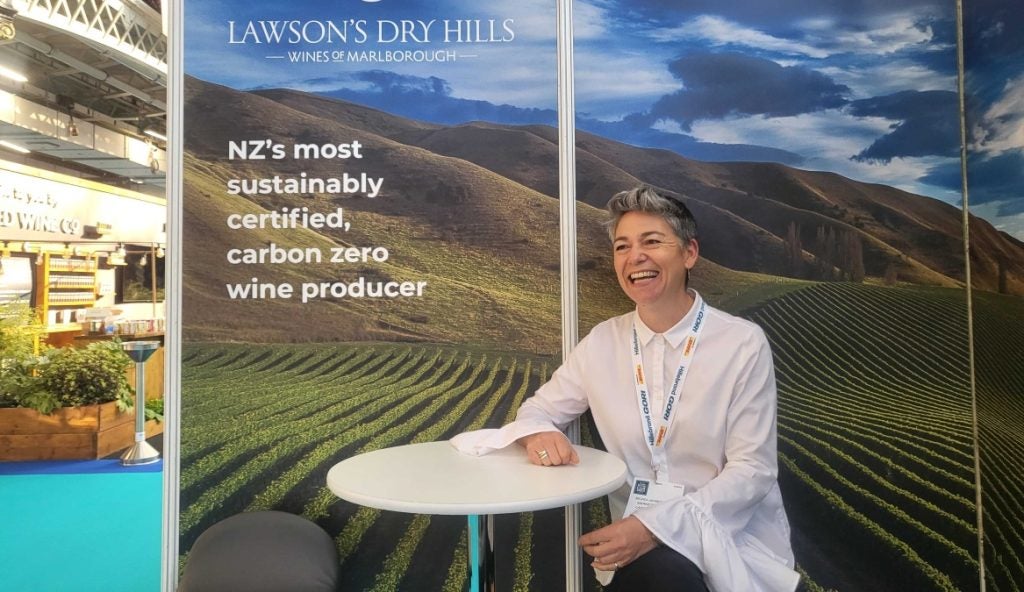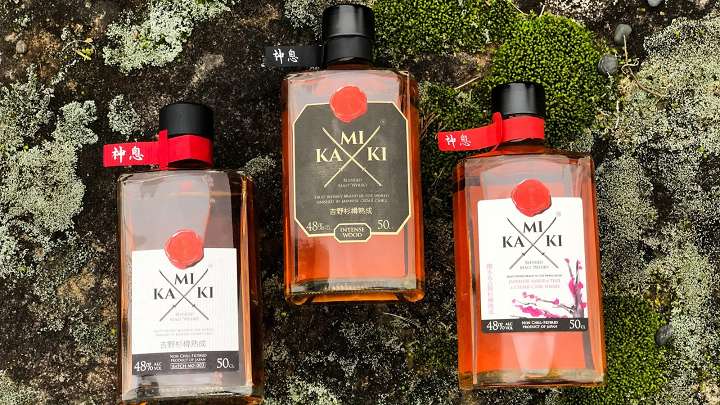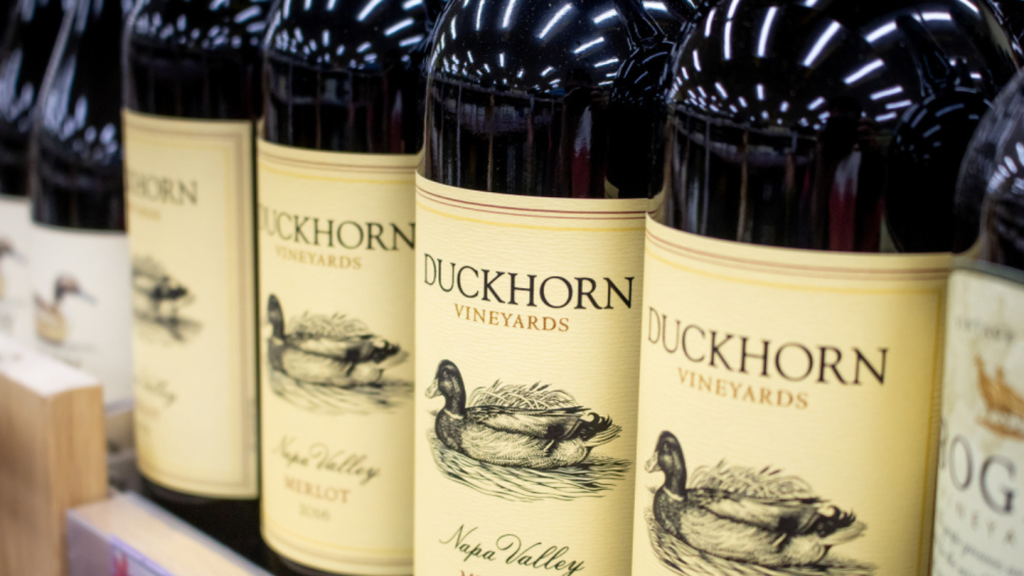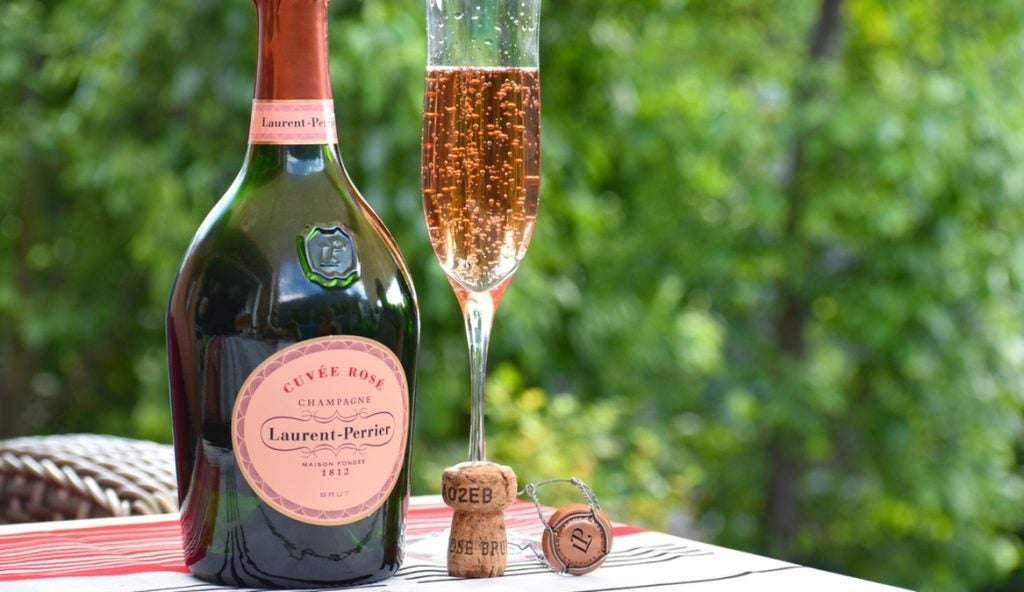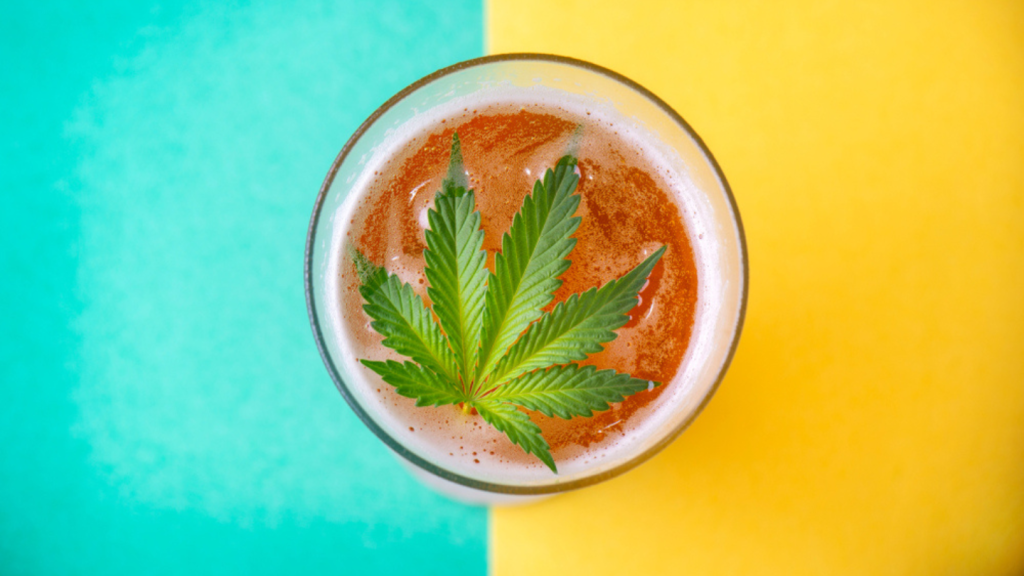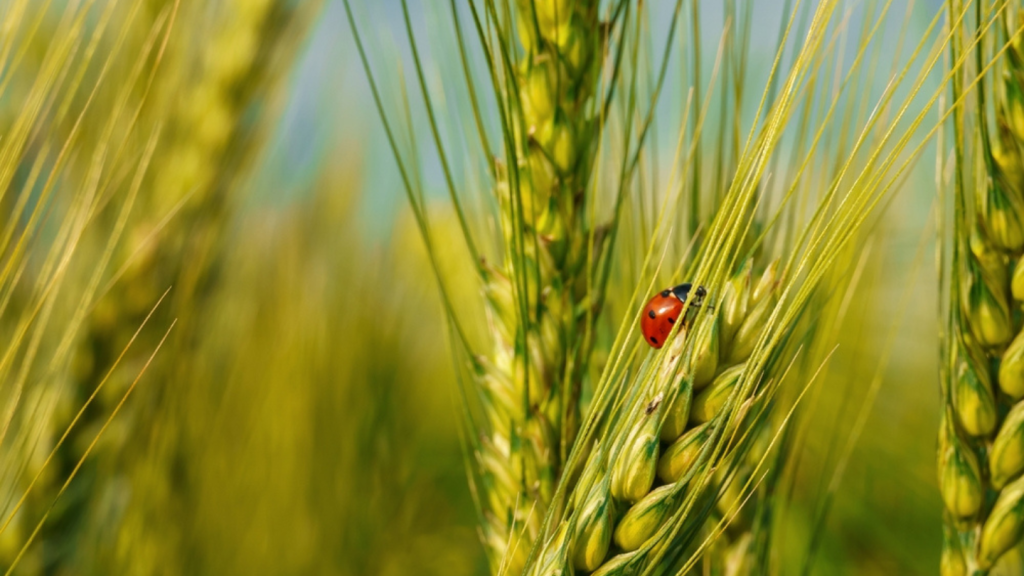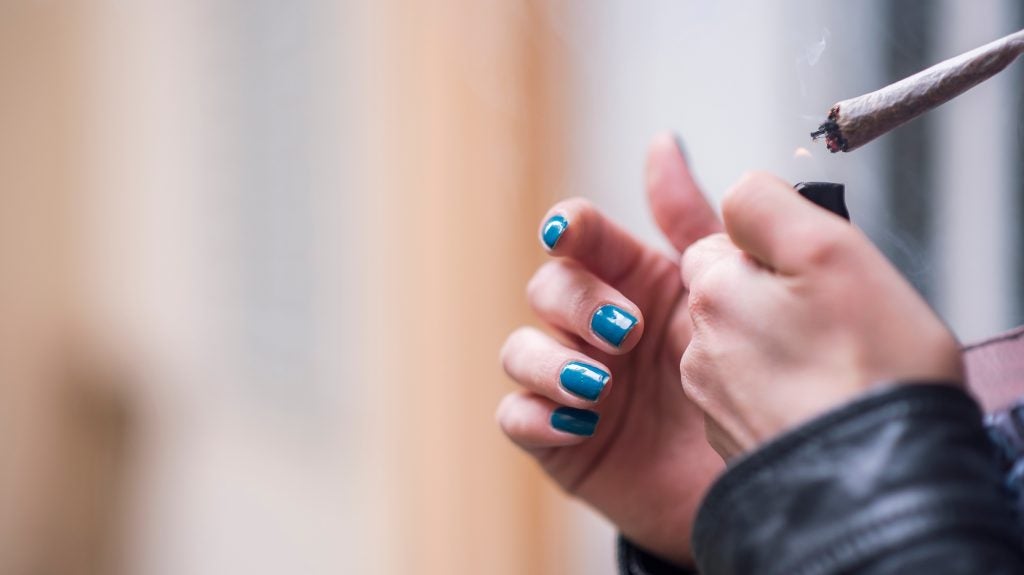Its first vineyard planted in 1982, New Zealand wine group Lawson’s Dry Hills is firmly – and exclusively – embedded in the Marlborough wine scene.
The group grows fruit in the Wairau, Waihopai, Omaka and Awatere Valleys of Marlborough for its namesake brand as well as for Blind River, the artist collaboration The Max, sustainability-focused brand Inviniti and the more entry-level Mount Vernon.
The company employs just 18 people across its vineyards, winery, office and cellar door in Blenheim.
Just Drinks caught up with group marketing manager Belinda Jackson, who covers global sales and marketing, at the London Wine Fair this week to hear more about the company’s plans.
Jessica Broadbent (JB): How do you stand out as a wine producer in a region like Marlborough?
Belinda Jackson (BJ): We are New Zealand's most sustainably-certified wine producer. We are certified sustainable from vineyard, to port, to shipment and we are carbon-zero through every aspect of our business. There isn't another producer in New Zealand currently, that we know of, with those certifications.
JB: Will Lawson’s Dry Hills ever move outside of the region and buy vines elsewhere?
BJ: No, we are 100% Marlborough and members of AMW (certification body Appellation Marlborough Wine). The AMW is about 100% Marlborough, sustainably grown and made, bottled in New Zealand and managed yields. That's a key part of what authentic Marlborough is about.
In other words, there's a lot of Marlborough where there's a lot of bulk shipped and other things. We can't stop that but we need to talk more about the values that are important to us and AMW really embraces that.
You add that to our sustainability certifications, and that's what we're about.
It's that authenticity and integrity, so that we produce wines that speak to the varietal and where it was grown.
JB: Marlborough is, internationally at least, very much seen as a one-varietal region. As an export-focused brand, what are your predictions for the region? Will the Marlborough Sauvignon bubble burst any time soon?
BJ: Well, we've got to be very careful not to burst the bubble ourselves. This is where something like AMW comes in because there are bigger players out there doing things that are not necessarily the way that we would want to do them.
We want to make sure that we are putting the best we can in every bottle. I don't want other people diluting the equity in the word ‘Marlborough’. But I can't control what they do.
Will the bubble burst in the market? I doubt it. Some people might be like, ‘Oh God, Marlborough Sauvignon Blanc. Yawn’, but sorry, your customers still want to drink it.
I don't want other people diluting the equity in the word ‘Marlborough’.
We still have a lot of potential but we have to have layer two of the story. We have to have style diversity, promote our sub-regions, promote different winemaking techniques that might be of interest such as indigenous yeast or whether or not there's a judicious use of oak, making wines that really work with food, making sure it's not all about the herbaceous cats-pee green-capsicum gum-watering eye-stinging acidity.
There are wines that don't conform to that but can still be, to be honest, more friendly, drinkable and food-friendly and that do deliver more than just that one-dimensional style. Marlborough is about a lot more than that.
We also need to talk about our other varietals. On our [London Wine Fair] stand, I've got Riesling, Chardonnay, Pinot Gris, Pinot Noir. Pinot Noir is the second-most-planted grape variety in Marlborough and we have tremendous range and depth, and we want to talk about those wines as well.
We love Sauvignon Blanc and we'll always lead the way with that from a stylistic perspective. But we want to be seen as amazing suppliers of outstanding Chardonnay and Riesling, Pinot Gris, Pinot Noir and bringing that sustainability piece to the fore. We can do that in New Zealand. We're small, we're nimble, we can act on it and that's what we all need to do as a nation.
JB: What percentage of Lawson’s Dry Hills' portfolio is Sauvignon?
BJ: About 80%, 75%.
JB: Do you think that might even out a bit with other varietals in time?
BJ: Well, at the moment that's what the market is telling us they want. We're ready to do other things but, you know, it's a long process, isn't it? You've got three years of planting before you can get a commercial crop. But, stylistically, with Sauvignon Blanc, there's still other things we can do with those sub-regional differences and winemaking differences, talking about the story and bringing that sustainable piece forward.
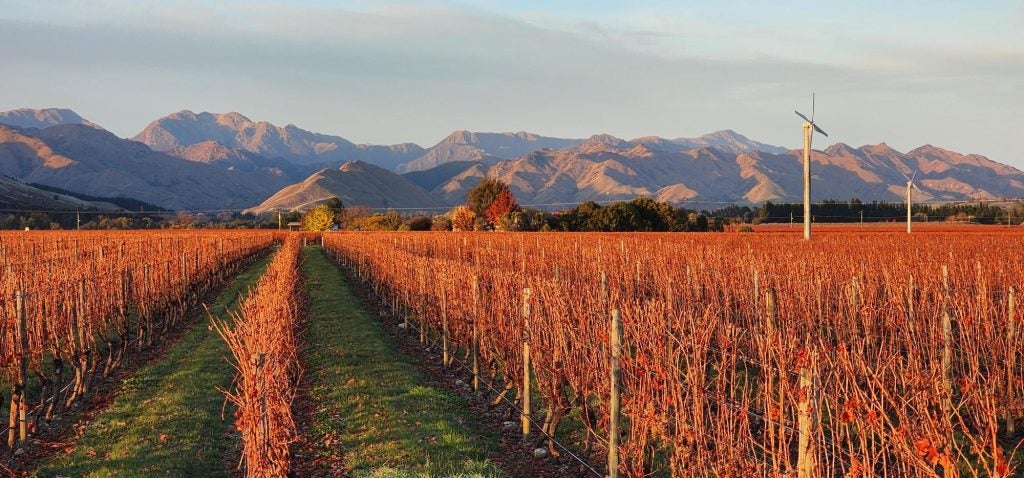
JB: Where are Lawson’s Dry Hills’ main export markets?
BJ: The Netherlands and the UK are key for us. Europe is big. We do quite a bit into Australia. We do a bit in our home market but we are heavily export-focused, around 90%.
JB: Have you always been export-focused?
BJ: Yeah. I think it's grown more so [recently] but really because of the number of competitors in our domestic market. We've never been a grocery brand. So where the grocery has grown so much in New Zealand, other brands have taken advantage of that and we haven't. Our home base has shrunk, I think, as a result of that. Therefore, if you're talking percentages, it means our exports have naturally become a big part of our business.
We do a nice little bit of business in Asia [as well]; South Korea, a couple of partners in China. Asia has quietened up but… there's still definitely potential in Asia and I'm more excited by Asia than I am by, say, America.
JB: Why is that?
BJ: They’re gradually starting to embrace white wine because, of course, red wine has always been the ‘thing’. But white wines and our aromatics are really brilliant with a lot of the food styles throughout Asia.
Wine needs to be looked at in a holistic way. It's part of an experience: you've got the people, the food, the atmosphere, the venue, the wine, the occasion. You've got the conversation. You've got all these things and to me wine is an integral part of that experience.
When we look at wine as just a drink, that's when we seem to be hitting brick walls: ‘Oh God, millennials aren't drinking it, Generation Z aren't drinking it. What are we going to do?’
Well, hang on a minute – if you're around the table for Sunday night dinner with your family, there’s every chance there will be a bottle of wine on the table. Let's embrace that. Let's look at that as being something that is a much bigger picture than just a drink. And I think it's really important that we do that with wine. That's how it's relevant and how it will continue to be relevant.
JB: How do you translate that idea into sales?
BJ: We all need to start talking about it more in that way. We need to present wine and talk about food and talk about the occasion.
We need to show how it brings value and creates stronger memories because it was part of something. It's being a part of the whole not being the whole.
JB: Are there any particular markets you're looking to open?
BJ: I'm talking to Italy at the moment – I really see potential in Europe. It's wonderful that we can talk to a country like Italy with so many amazing home-grown wines who are now starting to think: ‘Well, actually, we could start looking at the New World.’
I still hold hope to get into France at some point. France is where I started my journey in wine. I'm really keen to add value in a way that says we're not competing with you, we're showing you something that you don't have. I'm not saying Sauvignon Blanc, but I'm saying the style.
We've just got it in a different shape and size to what you guys do, and there may be an opportunity for it in certain places. We're not trying to say we're better because we're not we're just different. Does that therefore allow us to come alongside you? Some of them would say ‘yes’, others will say ‘never’.
JB: Are you focused on any one channel?
BJ: I have a few different brands so I am able to be fairly channel-specific. The Lawson's Dry Hills brand (estate and reserve label) has always had a strong on-premise hold but we're also in some of the independents, fine-wine merchants – who supply top restaurants – and online.
Blind River is in Waitrose only [in the UK]. Inviniti goes into Carlsberg, to [CMBC distributor] Crown Cellars.
JB: What are your biggest focuses in sustainability at the moment?
BJ: Our guiding light, if you like, is (sustainability certification) ISO14,001 and (carbon-zero certification) ISO14,064.
We have completed those and now for some years have been independently certified 100% sustainable as per ISO14,001 and carbon-zero certified under ISO14,064. Those are independently audited every year.
ISO is a globally recognised standard that we adopted in order to really make our business as sustainable as it can be. Our focus is from the vineyard to the port of shipment but, obviously, on carbon zero, we have to cover everything from our travel to everything else. The first point of it is to reduce and then it's the offsetting of what's left. But we now offset very little because we've reduced it so much.
The biggest areas of that are energy use, so you're talking about diesel and power.
One of the arguments [is] people saying: ‘Oh, God, we shouldn't buy New Zealand, we're in Europe, that can’t be sustainable.’ Well, if you actually take a lifecycle approach – 85% of the energy that goes into producing wine in New Zealand is renewable, compared to only 25% in Europe – it's actually incredibly sustainable to order wine from New Zealand. And then when you've got freight by sea versus trucking on the road, that's another significant portion of it.
There's always more we can do, like packaging and all of those aspects.
JB: Is it still more sustainable even when you factor in the shipping from New Zealand to Europe?
BJ: Yeah because 85% – even if you took out everything, just the production aspect – of that energy is coming from renewable resources rather than fossil fuels, which is not the case for, say, Europe. Shipping on sea is way more sustainable, then trucking.
JB: And you’re looking at lighter formats, too?
BJ: Definitely. The majority of our wine is bottled in 417g lightweight Burgundy bottles. We're now looking at a 385g bottle that our bottle supplier has brought out.
We buy our bottles from New Zealand (they already have 64% recycled content) and that's incredibly important. I do not believe in buying cheaper bottles in China, having them shipped from China to New Zealand, filling them up and then marketing back in China. That just doesn't feel right. Yes, we pay more for it but, at some point, you've got to actually make that decision.
The lighter format I'm looking at is the 63g Packamama bottle for Inviniti. We are looking at how we access the events and festivals channels with that, because we've got the perfect vehicle in order to deliver quality wine.
It's safe because it's not glass, 63g for the bottle, you get 91% more on a palette and the packaging at the end of use can be dropped in its entirety into one receptacle for recycling unlike some of the other lighter formats where you actually need the consumer to pull it apart and separate it. Which is still good but it's still a round thing going in a square hole.
JD: Do you think the perception of plastic has moved beyond ‘all plastic is bad’?
BJ: I think there is definitely an area where people do feel plastic is bad but it's not all bad and there’s an educational piece that has to happen there.
When you look at last mile (delivery) and end of life, the impact of that is so massive on the environment that we have to address that.
JB: Shipping-wise have things normalised in New Zealand?
BJ: It was, until we had issues with the Suez Canal. Covid was horrific but now we’ve got those other global challenges.
JB: How do you demand-plan with all these challenges?
BJ: I could send more stock and hold higher stock levels in, for example, the LCB (London City Bond) where I've got stock. But, in my other markets, I don't hold stock so my distributors have to make that decision themselves because the onus would be on them to have to ship more, pay more, hold the stock and the cost of that. At the moment, we are seeing that sales are slower because economically everybody's struggling a bit so they don't really want to load up.
We want to keep a sort of a JIT (just-in-time) system going where they feel confident that they've got rolling stock availability. But you can never guarantee that now. There are too many things beyond our control. Whether it's wars, pirates, rebels or a boat stuck sideways in the Suez Canal.


